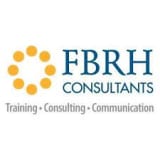This informal CPD article, 'ESG: Fad or Solid Business Sense?' was provided by FBRH Consultants, who aim to help businesses gain value by operating in much cleverer, sustainable ways.
In recent years, a new term has been making waves in the business world: ESG. Standing for Environmental, Social, and Governance, ESG has become a hot topic, with proponents hailing it as a transformative force in shaping the future of business. However, sceptics, question its validity, dismissing it as nothing more than a passing fad. So, is ESG just a temporary trend, or does it hold substantial value for businesses? Let's explore the subject and weigh the arguments.
To understand the significance of ESG, we must first grasp its core principles. Environmental factors encompass issues such as climate change, pollution, and resource depletion. Social factors address topics like diversity, labor standards, and community engagement. Governance involves corporate ethics, transparency, and executive compensation. ESG examines how businesses manage these aspects and the impact they have on society and the environment.
Supporters of ESG argue that it is more than just a buzzword; it represents a fundamental shift in business practices. They believe that ESG considerations are crucial for long-term success and sustainability. Here are some key reasons why ESG is considered solid business sense:
1. Risk mitigation: ESG factors directly affect a company's risk profile. By proactively addressing environmental risks, such as climate change or water scarcity, businesses can minimize potential disruptions to their operations and supply chains. Likewise, strong governance and ethical practices reduce the risk of legal issues, reputation damage, and financial penalties.
2. Enhanced brand reputation: Consumers today are increasingly conscious of the environmental and social impact of their purchasing decisions. Adopting ESG practices allows businesses to align with these values, build trust, and enhance their brand reputation. A positive reputation not only attracts customers but also helps in attracting and retaining top talent.














